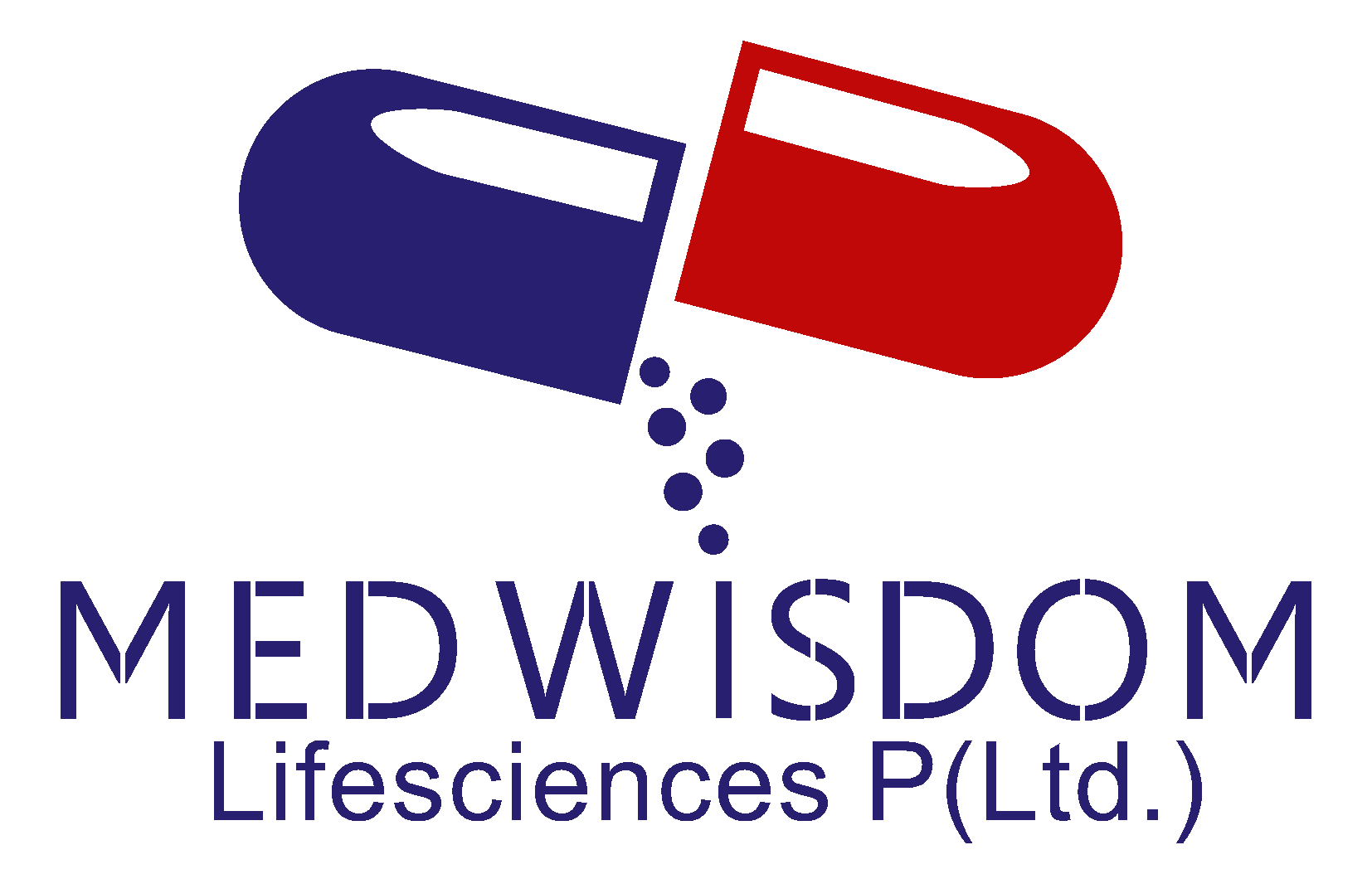REGULATORY SERVICES FOR INDIAN MARKET (Drugs)
Medwisdom has considerable experience in the interpretation of consolidated lists of questions and objections, which should be analyzed by a company in the light of the assessment reports that are provided by the rapporteur and co-rapporteur. It also needs to be appreciated that the time available to the assessors to review the company’s response package is limited. Hence, in order to achieve success, the responses must be compiled in a way that affords efficient review by the regulator.
This requires clarity in the approach and a clear presentation of the data, in order to satisfy the objection, as well as justifying the company’s position on the issue. Here, Medwisdom expertise can be invaluable.
Being as a regulatory consultant, we provide the clear/unambiguous strategy for getting the approval in define timeline. We have an expertise for the following type of submission.
Investigational New Drug (IND):
“investigational new drug” means a new chemical or biological entity or substance that has not been approved for marketing as a drug in any country”
During a new drug's early preclinical development, the sponsor's primary goal is to determine if the product is reasonably safe for initial use in humans, and if the compound exhibits pharmacological activity that justifies commercial development. When a product is identified as a viable candidate for further development, the sponsor then focuses on collecting the data and information necessary to establish that the product will not expose humans to unreasonable risks when used in limited, early-stage clinical studies.
Government Health Agency role in the development of a new drug begins when the drug's sponsor (usually the manufacturer or potential marketer), having screened the new molecule for pharmacological activity and acute toxicity potential in animals, wants to test its diagnostic or therapeutic potential in humans. At that point, the molecule changes in legal status under the Food, Drug, and Cosmetic Act and becomes a new drug subject to specific requirements of the drug regulatory system.
Demonstration of safety and efficacy of the drug product for use in humans is essential before the drug product can be approved for import or manufacturing and marketing in the country. The Rules 122A, 122B, 122 DAB, 122DAC, 122 DD and 122E of Drugs and Cosmetics Rules and Appendix I- XII of Schedule Y, describe the information/data required for approval of clinical trial and/or to import or manufacture of new drug for marketing in the country.
New drugs as define under Rule 122-E of Drugs and Cosmetics Rules as drug, including bulk drug substance or phytopharmaceutical drug which has not been used in the country to any significant extent under the conditions prescribed, recommended or suggested in the labelling thereof and has not been recognized as effective and safe by the licensing authority mentioned under rule 21 for the proposed claims. A drug already approved by the Licensing Authority mentioned in Rule 21 for certain claims, which is now proposed to be marketed with modified or new claims, namely, indications, dosage, dosage form (including sustained release dosage form) and route of administration. fixed dose combination of two or more drugs, individually approved earlier for certain claims, which are now proposed to be combined for the first time in a fixed ratio, or if the ratio of ingredients in an already marketed combination is proposed to be changed, with certain claims, viz. indications, dosage, dosage form (including sustained release dosage form) and route of administration. All vaccines and Recombinant DNA (r-DNA) derived drugs shall be new drugs unless certified otherwise by the Licensing Authority under Rule 21. A new drug shall continue to be considered as new drug for a period of four years from the date of its first approval.
RULES GOVERNING CLINICAL TRIALS
- Rule 122-A -Application for permission to import new drug
- Rule 122-B -Application for approval to manufacture new drug
- Rule 122-DA-Mandatory requirement of permission from DCG (I) for conduct of clinical trial of new drug;
- Rule 122 DAB -Provision for examination of serious adverse event (SAE) of injury and death and payment of compensation in clinical trial related cases. Provision for debarment of the applicant in case of failure to pay compensation;
- Rule 122 DAC -Conditions of permission for conduct of clinical trial which includes mandatory requirement to follow Good Clinical Practice (GCP) guidelines, guidelines and requirements specified in Schedule Y of Drugs and Cosmetics Rules and other applicable regulations. Provision for debarment of applicant and investigator in case of non- compliance
- Rule 122 E-Definition of new drug
- Schedule Y-Detailed guidelines and requirements for conduct of clinical trial and approval of new drug
- Good Clinical Practice Guidelines -issued by CDSCO, Directorate General of Health Services, Govt. of India
Subsequent New Drug Approval (SND):
Subsequent new drug division deals with applications for approval of an already approved new drug (within 4 years) and A drug already approved by the Licensing Authority mentioned in Rule 21 for certain claims, which is now proposed to be marketed with modified or new claims, namely, indications, dosage, dosage form (including sustained release dosage form) and route of administration.
Subsequent new drug application can be made for the following cases:
- Bulk Drug already approved in the country (approved within 4 years).
- New drug (Formulation) already approved in the country (approved within 4 years).
- A drug already approved and proposed to be marketed with new indication.
- A drug already approved and proposed to be marketed as a ‘New Dosage Form/ New Route of Administration’.
- A drug already approved and proposed to be marketed as a ‘Modified release dosage form’.
- A drug already approved and proposed to be marketed with additional strength
Relevant Rules for Subsequent New Drug Application:
- Rule 122-A -Application for permission to import new drug
- Rule 122-B -Application for approval to manufacture new drug
- Rule 122-DA-Mandatory requirement of permission from DCG (I) for conduct of clinical trial of new drug;
- Rule 122 DAB -Provision for examination of serious adverse event (SAE) of injury and death and payment of compensation in clinical trial related cases. Provision for debarment of the applicant in case of failure to pay compensation;
- Rule 122 DAC -Conditions of permission for conduct of clinical trial which includes mandatory requirement to follow Good Clinical Practice (GCP) guidelines, guidelines and requirements specified in Schedule Y of Drugs and Cosmetics Rules and other applicable regulations. Provision for debarment of applicant and investigator in case of non- compliance
- Rule 122 E-Definition of new drug
- Schedule Y-Detailed guidelines and requirements for conduct of clinical trial and approval of new drug
- Good Clinical Practice Guidelines -issued by CDSCO, Directorate General of Health Services, Govt. of India
Fixed Dose Combinations:
Fixed Dose Combinations refer to products containing one or more active ingredients used for a particular indication(s). FDCs can be divided into the following groups and data required for approval for marketing is described below:The first group of FDCs includes those in which one or more of the active ingredients is a new drug. For such FDCs to be approved for marketing data to be submitted will be similar to data required for any new drug (including clinical trials) [see rule 122E, item (a)].
The second group FDCs includes those in which active ingredients already approved/marketed individually are combined for the first time, for a particular claim and where the ingredients are likely to have significant interaction of a pharmacodynamic or pharmacokinetic nature [see rule 122E, item (c)]. If clinical trials have been carried out with the FDC in other countries, reports of such trials should be submitted. If the FDC is marketed abroad, the regulatory status in other countries should be stated. (see Appendix I, item 9).
For marketing permission, appropriate chemical and pharmaceutical data will be submitted. In case such a combination is not marketed anywhere in the world but these drugs are already in use concomitantly (not as an FDC but individually) for the said claim, marketing permission may be granted based on chemical and pharmaceutical data. Data showing the stability of the proposed dosage form will also have to be submitted.
For any other such FDCs, clinical trials may be required. For obtaining permission to carry out clinical trials with such FDCs a summary of available pharmacological, toxicological and clinical data on the individual ingredients should be submitted, along with the rationale for combining them in the proposed ratio. In addition, acute toxicity data (LD 50) and pharmacological data should be submitted on the individual ingredients as well as their combination in the proposed ratio.
The third group of FDCs includes those which are already marketed, but in which it is proposed either to change the ratio of active ingredients or to make a new therapeutic claim. For such FDCs, the appropriate rationale including published reports (if any) should be submitted to obtain marketing permission. Permission will be granted depending upon the nature of the claim and data submitted.
The fourth group of FDC includes those whose individual active ingredients (or drugs from the same class) have been widely used in a particular indication(s) for years, their concomitant use is often necessary and no claim is proposed to be made other than convenience. It will have to be demonstrated that the proposed dosage form is stable and the ingredients are unlikely to have significant interaction of a pharmacodynamic or pharmacokinetic nature. No additional animal or human data are generally required for these FDCs, and marketing permission may be granted if the FDC has an acceptable rationale.
RULES GOVERNING FIXED DOSE COMBINATIONS
The clinical trials are conducted in accordance with the Drugs and Cosmetics Rules. The specific Rules are-
- Rule 122 D -permission to import or manufacture fixed dose combination
- Rule 122 DA -Mandatory requirement of permission from DCG (I) for conduct of clinical trial of new drug;
- Rule 122 DAB-Provision for examination of serious adverse event (SAE) of injury and death and payment of compensation in clinical trial related cases. Provision for debarment of the applicant in case of failure to pay compensation;
- Rule 122 DAC -Conditions of permission for conduct of clinical trial which includes mandatory requirement to follow Good Clinical Practice (GCP) guidelines, guidelines and requirements specified in Schedule Y of Drugs and Cosmetics Rules and other applicable regulations. Provision for debarment of applicant and investigator in case of non- compliance;
- Rule 122 DD -Requirements and guidelines for registration of Ethics Committee;
- Rule 122 E-Definition of new drug;
- Schedule Y-Detailed guidelines and requirements for conduct of clinical trial and approval of new drug
- FDC Draft Guidelines -issued by CDSCO, Directorate General of Health Services, Govt. of India
Post approval:
Once approval has been obtained, there is usually a need for variations on the original marketing authorisation, introducing process scale-up, changing details in the product characteristics, adding new dosage strengths of the product, or new presentations, introducing new manufacturing facilities, applying for additional indications, and so forth. Moreover, a marketing authorisation requires continuous monitoring, in order to ensure that the conditions of the approval are being met, for example in the area of responding to ongoing questions that were not answered pre-approval. In some cases, we have continued to work on products that were originally approved with our involvement more than 18 years ago. In such cases, XYZ provides continuity in understanding how the product and the process has evolved over that period of time, providing input on the strategy and timing of future variations, and supporting the client in obtaining agreement with the relevant regulatory authorities on the strategy for changes.
Our services relating to post-approval issues include:
- Development of strategies for post-approval variations to the marketing authorisation, notably:
- Changes to manufacturing facilities or the process
- Changes to product characteristics or presentation of the product
- Extensions of shelf-life
- Introduction of additional indications to the original marketing authorisation
- Monitoring of post-approval commitments and responses to ongoing questions
- Organisation of post-approval meetings with regulators to address future issues in product development
- Discussion of variation strategies and timing with regulatory authorities
- Compilation and submission of responses to ongoing commitments, and variation dossiers







